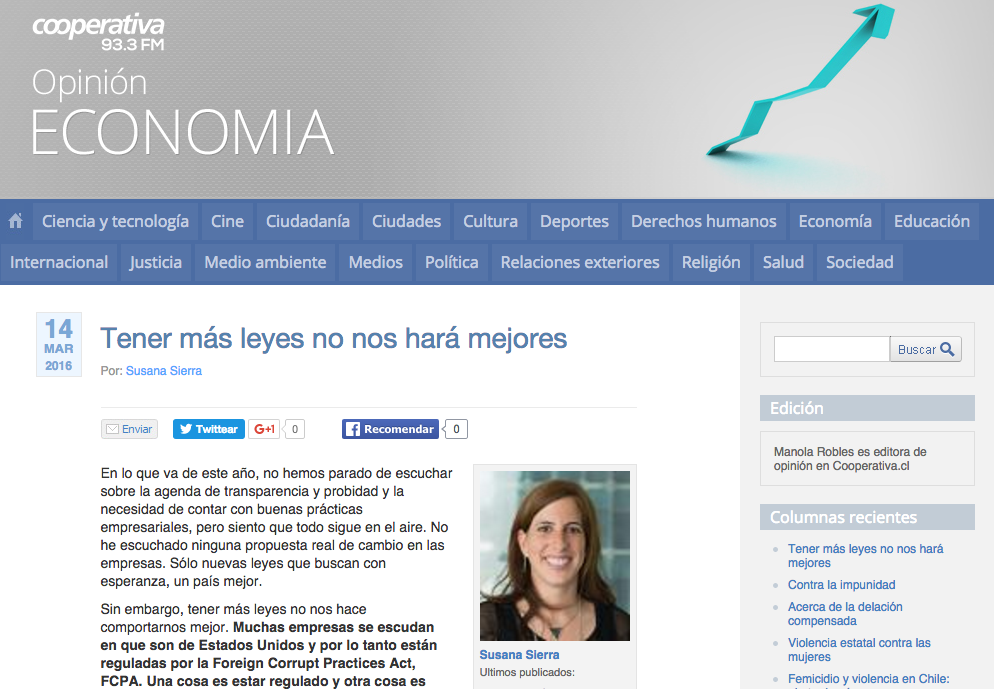
So far this year, we have not stopped hearing about the transparency and probity agenda and the need for good business practices, but I feel that everything is still up in the air. I have not heard any real proposal for change in companies. Only new laws that hopefully seek a better country.
However, having more laws does not make us behave better. Many companies hide behind the fact that they are from the United States and therefore are regulated by the Foreign Corrupt Practices Act, FCPA. It is one thing to be regulated and another thing to comply with the laws… or are the cases we saw last year and this year due to lack of regulation?
Another issue that surprises me is that when we hear about bribery, corruption, or its synonyms, we always talk about it from the political and public sectors, but let’s not forget that for corruption to exist, there must be two sides, one public and one private.
So, what is the role of business in the fight against corruption? Rather than sitting in a box, or reassuring themselves with “nice” codes of ethics, companies (their owners, directors, and executives) must ensure that they have adequate controls to prevent corruption.
By controls, I don’t mean a lot of policies and procedures, but effective controls: a good supplier payment policy, a good whistleblower channel, but what works!
Many companies remain calm because they do not receive complaints. However, they should ask themselves the question: do I not receive complaints because nothing happens in my company, or because nobody knows or trusts the channel?
And above all, a good incentive policy. Cases of bad practices, or the big cases against free competition that we saw last year, would have been different if the board of directors had questioned what the executive had to do to reach the goals that were set.
I could go on and on, but more than more laws for our country, I think it is very important that businessmen and directors, who lead the private sector in Chile, start talking about concrete measures and solutions, mainly from self-regulation, because if not, we are going to fill ourselves with laws that will generate more bureaucracy and therefore, more corruption.
By Susana Sierra
This article first appeared in Cooperativa.cl on March 14, 2016










